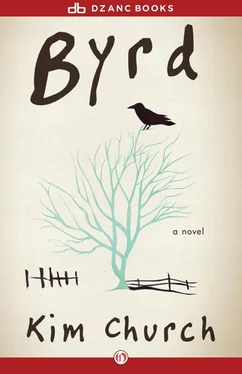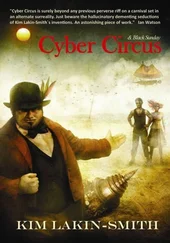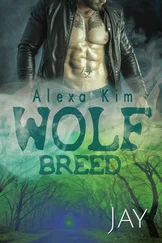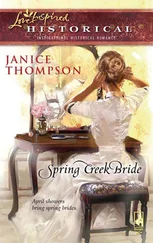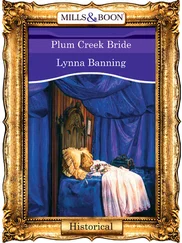Now our mother has an electric fireplace, a wall-mounted thing with synthetic logs and a heater and a fan. I don’t know what happened to the Christmas fireplace .
I’ve spent every Christmas Eve in that house. This year will be no different. My husband is packing the car as I write. He’s a good sport, my husband, and a methodical packer .
We married late — I was forty-four, too old for a big white dress and a grand entrance. I wore a blue sweater and a wool skirt and he wore his suit and we stood in front of a justice of the peace, a tall, stooped man with a cough, and read the vows we’d written. Simple vows . I will always love you. I will never leave.
I can guess what you’re thinking: I’m not qualified to make such promises and don’t deserve them. You’re probably right. But there comes a time, even for someone like me, when there’s nothing to do but throw yourself into whatever your life is. My life is a secondhand bookstore and a husband and a house on a hill and a pair of finches, green-wing singers who can turn their heads all the way around .
The man I married is not your father. Your father was a musician. Not famous, but he had a gift .
He married someone else soon after you were born, and they had a son, your half-brother. I never met your father’s wife, though I once spoke with her on the phone — at least I think it was her. She died in a car accident years ago. By the time I found out, it was too late to send a sympathy card, even if I’d known where to send it .
I haven’t seen your father since you were born. I’ve gone to two high school reunions hoping to. At the last one, our thirtieth, he wasn’t even listed in the class directory. No one had heard from him. He’s probably off somewhere leading a secluded and mysterious life. He never quite belonged to us, your father. He was never mine .
But you .
I looked for you, years ago. I’ve written you letters, a box full, all unsent .
This one I am mailing, because you’re grown now. Your coming-of-age letter .
Maybe one day you’d like to meet me. Maybe not. I have hopes but no expectations. Here’s one decision, at least, that gets to be yours. This letter is my invitation to you, a standing, arms-open-wide invitation to visit if and only if you want to, when and only when you’re ready. I’m easy to find; the agency that placed you has all my information. I’m sure you have questions for me. I promise to answer if I can. Maybe you have things you’d like to say. I promise to listen. I’m a good listener; your father always said so. He once said that when I listened, it was like I let everything else fall away. If he ever loved me, it was for that .
Don’t worry about calling first. Just come. That way if you change your mind at the last minute I’ll be none the wiser. We have a nice guest room, freshly painted antique white (I don’t know your favorite colors), with windows overlooking a creek. You can stay as long as you like .
For now, I should stop and post this so that my husband and I can leave for my mother’s, a two-hour drive. When we get there my husband will insist on parking on the street, leaving the driveway open for people may or may not show up. (“Just in case,” he’ll say.) My mother’s Christmas tree will be lighting up her picture window, a little tabletop tree with bubbling blue lights. We’ll walk inside and the house will smell like ham and mulled cider and cigarettes. My mother will get up from her electric fire to greet us. She’s probably camped there this very minute, toasting her hands, glancing at her watch, wondering if we’ll be late as always. Wishing we were there already. Trying to be patient. Trying, as she does, as mothers do, simply to wait .
He is a curious, careful child, touching things with his fingertips to feel how they’re put together, sometimes taking them apart and remaking them into new things with motors and wheels. He thinks, his whole family does, that he will become an inventor. No one thinks claims adjuster . No one ever does.
He grows up, marries, and at twenty-nine, moves to Bisbee, Arizona because his wife wants to be near her parents and convinces him the desert air will cure his asthma. Which it does. But it doesn’t erase the old panic, the sense that he could run out of breath at any minute.
Bisbee was once a mining town, then an almost-ghost town, then a town of squatters — artists, craftsmen, outlaws, misfits, refugees. Now ordinary people like Sam and Margaret live here. Bisbee is higher and hillier and usually at least ten degrees cooler than Tucson — where Margaret’s parents live — and redder. Everything is red: red rocks, red hills, red as far as you can see. In a certain light it seems the whole world is on fire.
The days can be scorching, but the nights cool off fast, and the sky fills up with stars. Sam buys a telescope. He keeps a calendar of eclipses and meteor showers.
“Why?” Margaret asks.
He loves her but she is as incomprehensible to him as he is to her.
He takes a job managing claims for his father-in-law’s insurance company. He does all his own fieldwork, driving around the state, interviewing people, taking pictures of damaged houses and cars. His photographs are his art: fascinated close-ups of blistered paint, scarred wood, crumpled metal, smashed glass. He builds a darkroom in the garage and makes black-and-white prints. He loves the closeness of the darkroom, its chemical smell.
Margaret complains that his photographs are taking over the house. She’s tired of coming home and finding wet prints draped all over everything. No matter how meticulous he is, now matter how careful to protect the furniture, she complains. “I can’t stand it. The mess, the smell.”
Margaret wants to start a family. They have a lot of sex, more than Sam ever counted on. He knows he should enjoy this, and pretends to, but after a while it starts to feel like punishment.
The fertility doctor is Margaret’s idea. Sam thinks the treatments are a waste of resources. All that money to make more babies when there are so many already. “Why not adopt?” he says. Margaret says, “Because you never know what you’re getting.” He wants to say, “When do you ever?” But he goes along. They cash in their savings and he learns to give the shots. He tries to do this as well as it can be done (he’s like this about everything), with the least pain to Margaret. He tries to give the best shots ever given.
When the treatments don’t work, Margaret blames him. She accuses him of not wanting a child enough. In fact, he has come around to thinking that having a child — his own — would be a good thing. Someone who might share his natural curiosity, his interests. Someone who might want to learn what he can teach. Someone to make him feel useful.
He misses North Carolina, even though he couldn’t breathe there. He misses all the things that triggered his asthma — grass, shade trees, flowering bushes.
He misses his family. His mother can’t travel but his sister visits from time to time. Her visits remind him what it’s like to be with someone who still loves him. He shows her around Bisbee, all the coffee shops and art galleries. He drives her to the desert and points out plants she doesn’t know: saguaro, cat-claw, ocotillo, jumping cholla. There are snakes and lizards and roadrunners on the highway. Everything is exotic and bright, suffused with light. “Like the bottom of the ocean,” Addie says.
In the end, the surprise is not that Margaret leaves — he assumes when she moves to Tucson to take care of her mother that she isn’t coming back. The surprise is that he stays. He has become a creature of the desert, his lungs accustomed to dry air, his eyes to long views.
Читать дальше
